Web: push messages not arriving
Testing tips for web push campaigns
Troubleshooting steps to follow if you are not receiving web push notifications.
Review the campaign status
Check the notifications log for this campaign to see if the message is marked as sent, delivered, etc. Review our dedicated guide on notifications log for more details.
Check the device's addressability status
Web push is a permission based channel, so you will first need to allow push notifications in your browser. See our web push quick start guide for more details about how to opt-in and supported browsers.
Once that you have opted in, make sure that your device is push addressable. You can do so by obtaining your device information (review our dedicated guide) and then, once you have your device ID, navigate to Data > Devices > click on your device ID and navigate to the Push subscription section. If all is correct, the device should have a device token, and it will show as push addressable as shown in the screenshot below:
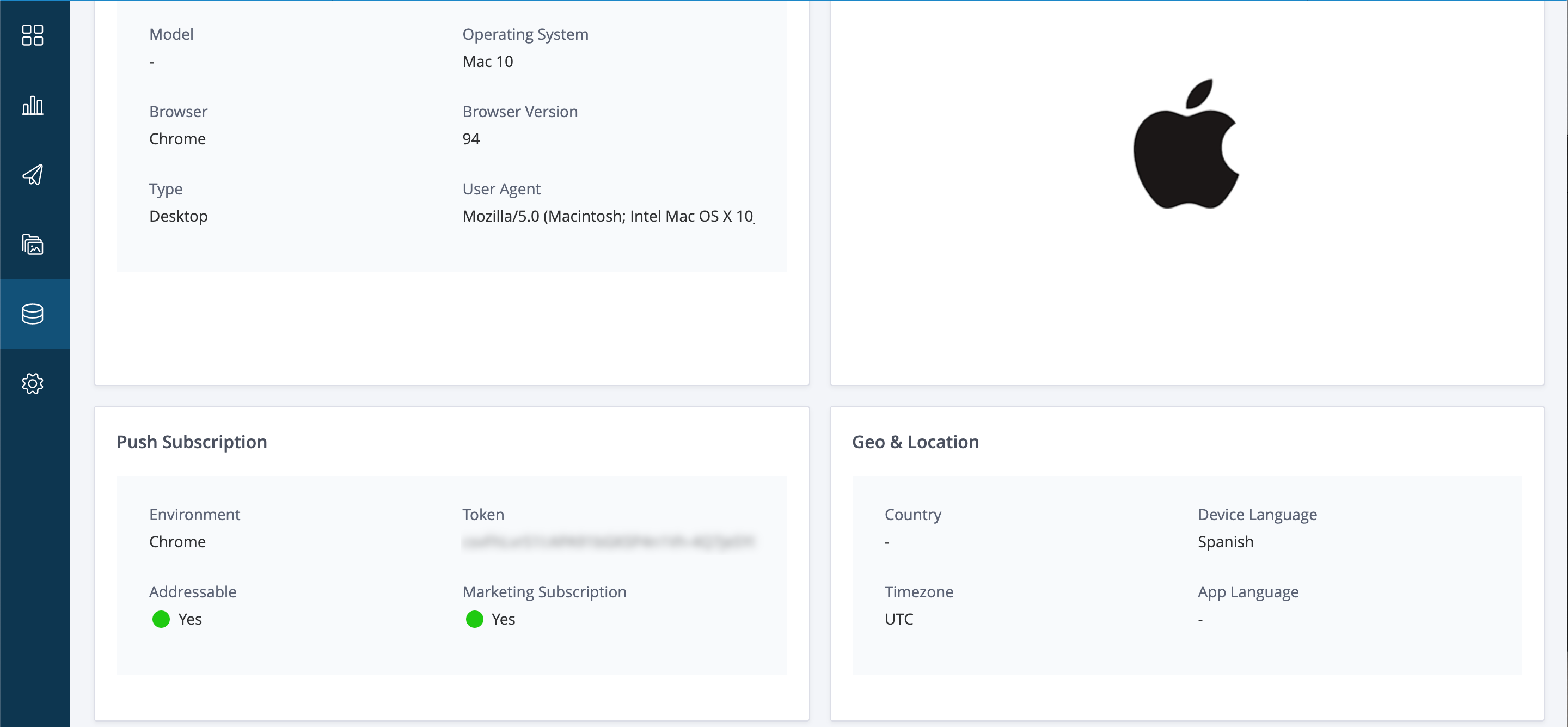
The screenshot above shows a device that has opted in for push notifications on Chrome.
If the token hasn't been populated, then you haven't still opted in. If the token is populated and the device is not addressable, the best approach is to clear your environment to start from scratch.
Make sure notifications are allowed at the OS level
Once that your device is push addressable, the next step would be to review the OS notifications settings
Windows 10
In Windows 10, click on the Windows main menu > Notifications and Actions. Make sure that both the main toggle and the toggle for the different browsers is enabled.
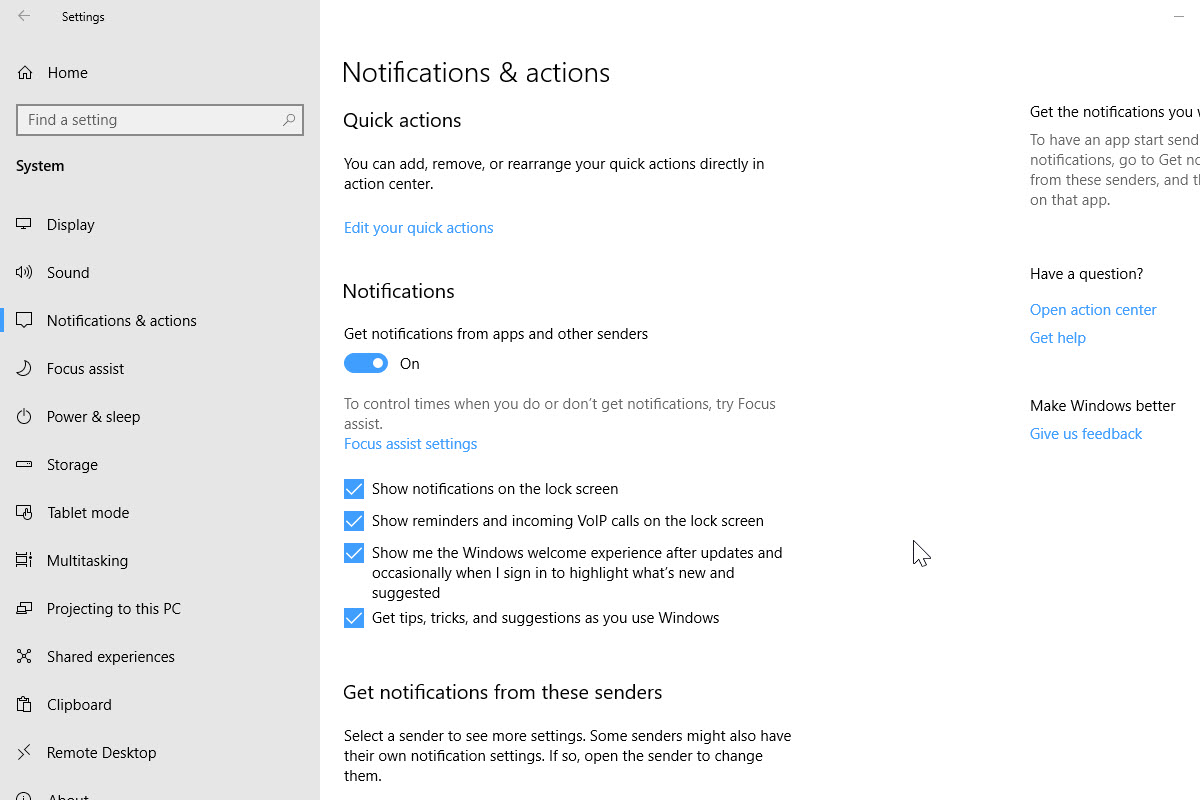
Main notifications and actions settings for Windows 10.
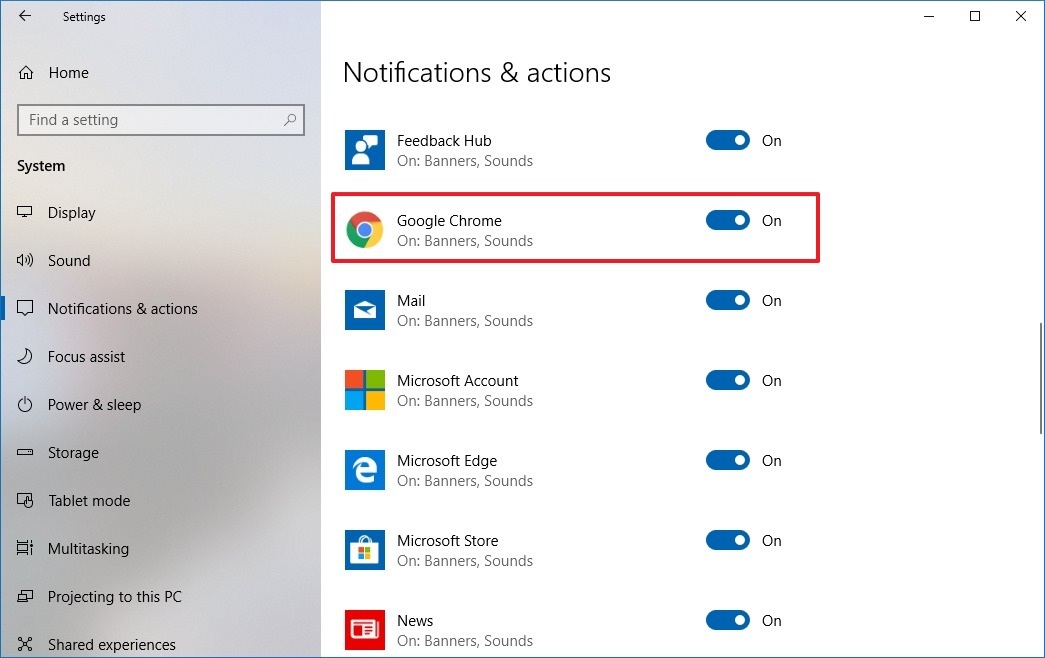
In this example notifications for Google Chrome are enabled.
Finally, make sure that your notifications are not paused by checking that Focus Assist is not turned on.
Focus Assist (also called Quiet Hours in earlier versions of Windows 10) allows users to avoid notifications, and is set by default to activate automatically under certain conditions. You can turn Focus Assist off by selecting the action center icon (which can be found at the very end on the right on the taskbar) > click on Focus Assist to cycle through the available settings until you set it to Off. (If you don't see the Focus Assist tile, you may need to select Expand first.)
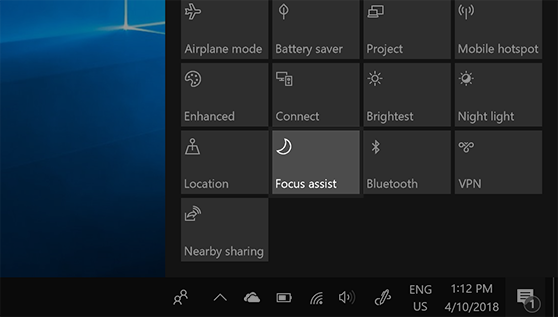
Focus Assist tile in Windows 10.
Mac
On Mac, choose Apple menu > System Preferences, then click Notifications. In Notifications preferences, select your desired browser on the left, then make sure that the Allow Notifications option is enabled for the app.
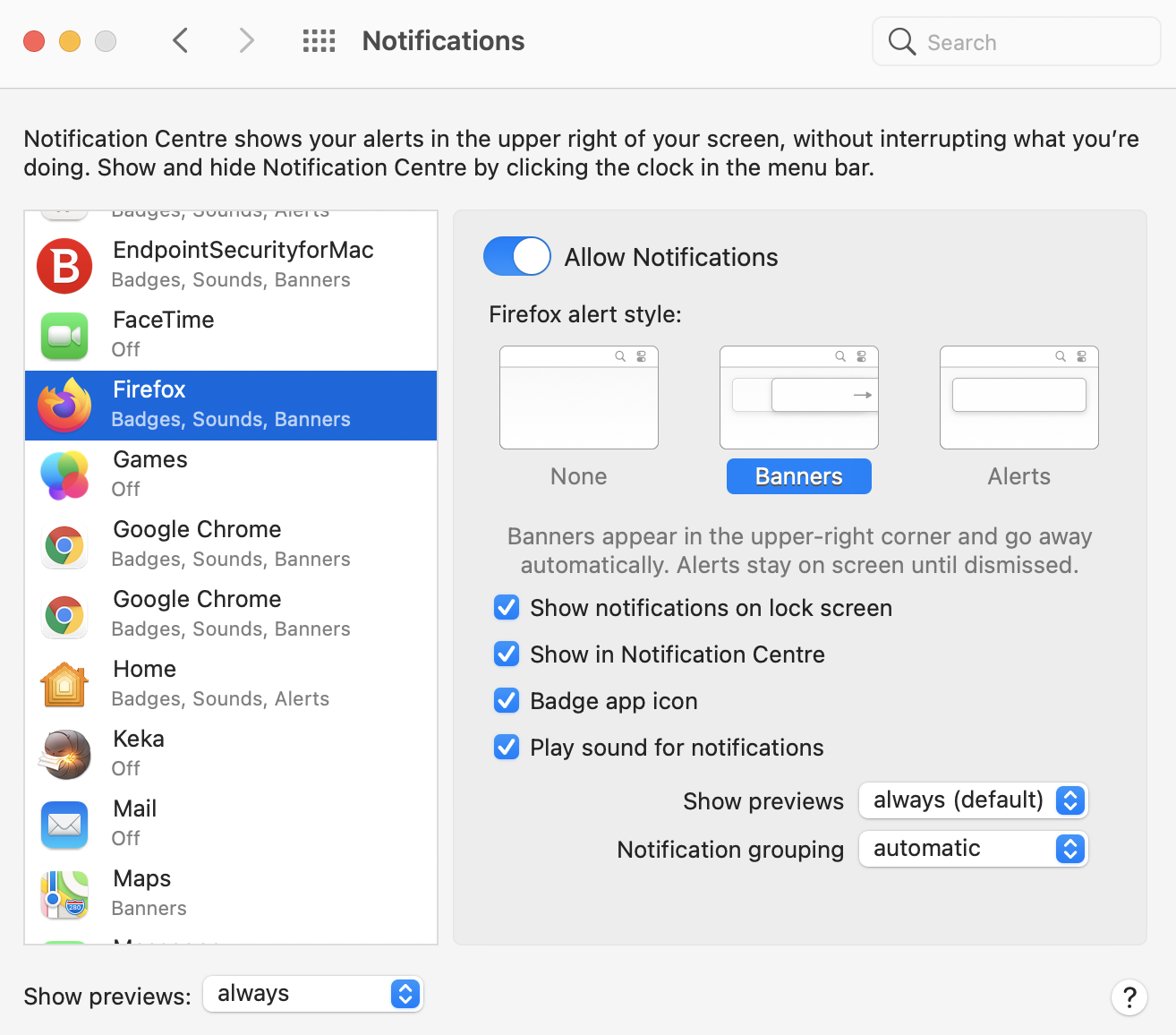
In this example, notifications for Firefox on Mac are allowed.
Finally, make sure that your notifications are not paused by checking that you don't have Do Not Disturb enabled.
When Do Not Disturb is on, the Do Not Disturb icon is shown in the menu bar. You don’t see or hear notifications when they arrive; they’re collected in Notification Centre where you can view them later.
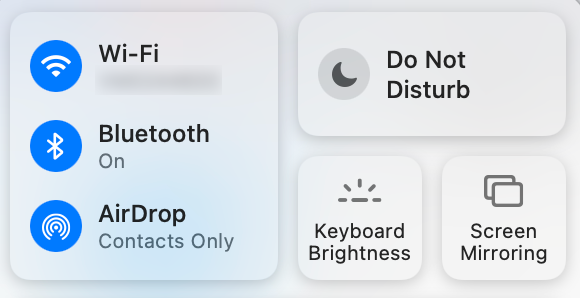
Reviewing that the Do Not Disturb option is not enabled from the menu bar.
Updated 3 months ago